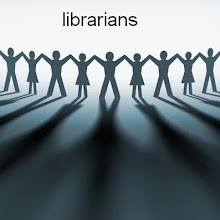Library Workplace Speech, a modern irony!
 The Push for Library Workplace Speech
The Push for Library Workplace Speechby Toni Samek
On June 26, 2005, the American Library Association (ALA) adopted a precedent-setting Resolution on Workplace Speech. It concludes: “Libraries should encourage discussion among library workers, including library administrators, of non-confidential professional and policy matters about the operation of the library and matters of public concern within the framework of applicable laws.”
The Canadian Library Association (CLA) has no such policy. However, the CLA’s Code of Ethics begins with the directive to uphold the CLA’s Statement on Intellectual Freedom. Since at least the 1970s, our librarians have embraced a core value of intellectual freedom, which includes the freedom to read. But while our librarians have been longstanding advocates of their patrons’ freedoms, they have been historically less clear about intellectual freedom as it applies to their own institutional or “inside” culture.
The librarian’s practice is arguably limited if she or he cannot exercise fully the freedoms of thought, conscience, opinion, and expression in the workplace—all of which are human rights that underlie intellectual freedom. These limitations detract from the librarian’s ability to provide the best collections and services possible. Canadian librarians are now scrutinizing their situation in light of the ALA’s 2005 resolution.
At the CLA’s annual conference in Vancouver in 2008, participants discussed the following questions: Whose voices are coming through the library channels (workshops on policy development, conference sessions, library journal articles)? To what extent is self-censorship or “inside” censorship common? What is and is not acceptable when librarians participate in citizen journalism that criticizes employers in the blogosphere? And in a profession that holds intellectual freedom so dearly, why did the ALA see the need to adopt its Resolution on Workplace Speech? Should the CLA adopt a sister resolution?
At the CLA session, panellists debated the pros and cons of resolutions on workplace speech for libraries. They discussed what such resolutions might look like and mean for the CLA and library administrations. Panellists also discussed the implications for the daily life, recruitment, and retention of Canadian library and information workers in the twenty-first century. About 70 people attended the session; perspectives from the United States and Canada were heard.
We considered whether the CLA may someday opt to censure libraries that do not uphold its core values, as the Canadian Association of University Teachers can do when it deems that academic freedom is not upheld. We acknowledged that the ALA’s resolution is a persuasion and consensus-building tool, but it does not reflect enforcement authority in libraries. We also discussed a model clause in the Saskatoon Public Library agreement that directs the institution to uphold the CLA’s Statement on Intellectual Freedom—for both the library’s outside publics and inside workers—and the newly amended Code of Conduct for Vancouver’s libraries, which mentions criticisms of policy and city officials.
The location and timing of the CLA’s conference was significant because Vancouver’s public library had had its first strike in 2007 (which was followed by a lockout at Victoria Public Library). The strike in part prompted the CLA to pass a related resolution on pay equity; the executive council approved the Canadian Library Association Position Statement on Equitable Compensation for Library Workers on October 5, 2007.
The question for the future is, Without freedom of speech in the library workplace, can our librarians be effective advocates for everyone else’s intellectual freedom?
Toni Samek is a member of the Canadian Library Association. From 2005 to 2008, she was the convenor of the CLA’s Advisory Committee on Intellectual Freedom. A longer version of this article first appeared as “Cultivating a Culture of Freedom of Expression in the Library Workplace” in Progressive Librarian #31 in the summer of 2008.
Source: Freedom to Read, 2009
And relating to this a blog entry from John Berry:
Too Nice "NewLib"
March 10, 2009
There is a sad message from many of the "mentors" on NEWLIB-L, a discussion list for new librarians that is one of my favorites. The list has a home page at NEWLIB-L. The message in several posts is to "express yourself with great care not to offend anyone else who reads the list." Several posts have ranted about postings that were considered "unprofessional" or "off topic." What they really tell the "new" librarian is that free expression doesn't apply in professional discourse, only out in the street or in your personal debates. This same syndrome haunts many discussion lists from ALA units and others. It is as if free expression must be limited or at least tempered if it is to be allowed online. It is the wrong message, especially in a profession where so many have sacrificed so much for free expression. Hope that the new technology isn't wasted on an excess of amenities, niceties, and free advice that is worth the price. If those "mentors" can't take the heat, tell 'em to get out of the kitchen.
